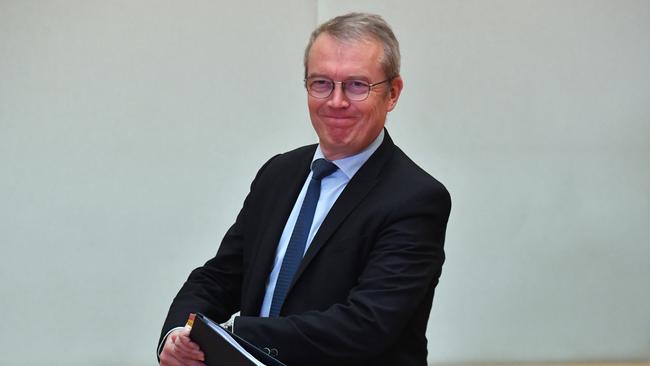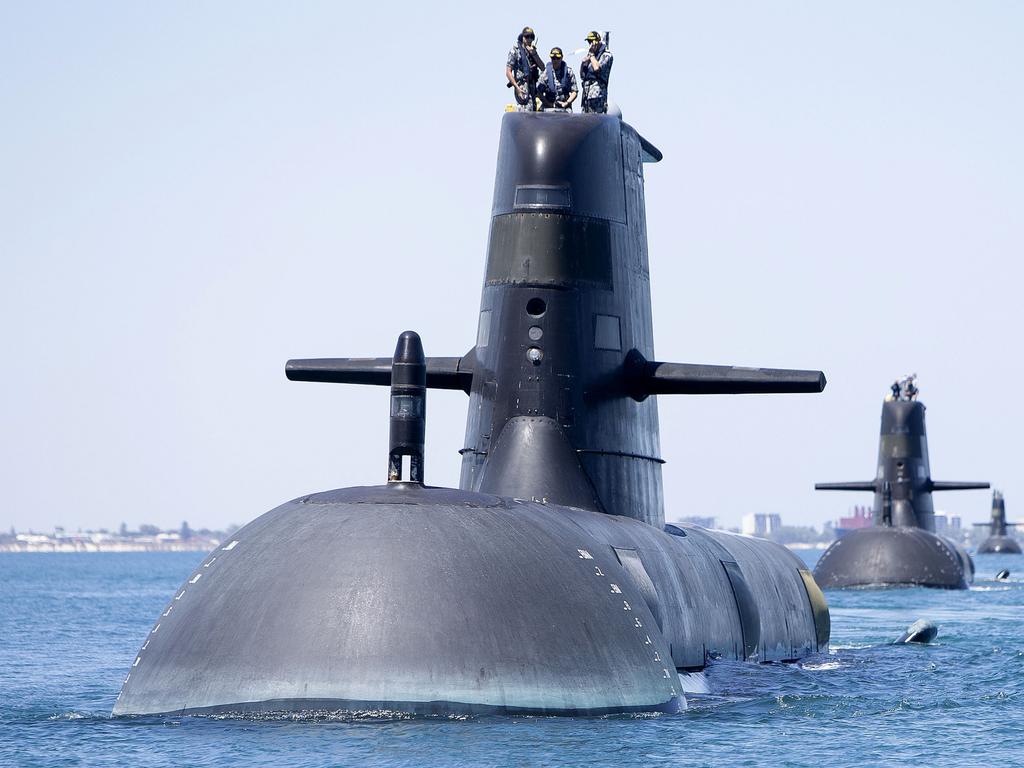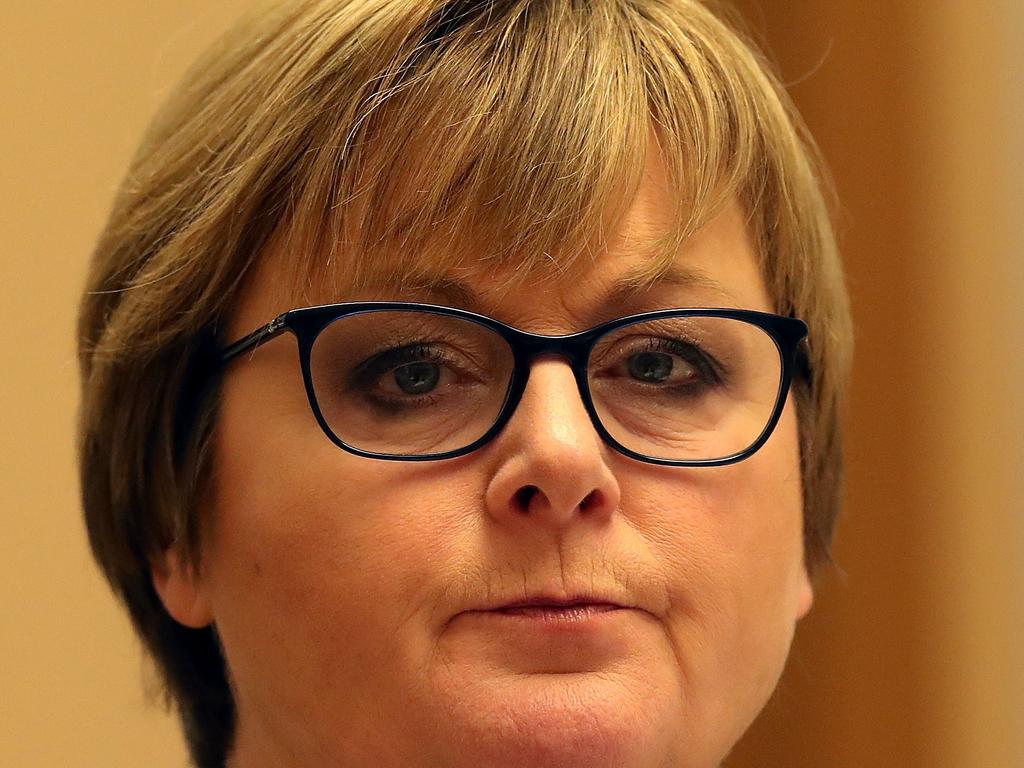
But there remain significant questions around the pledge, which the company is not yet willing to sign up to contractually.
The commitment, on Monday night, followed explosive comments by Naval Group Australia CEO John Davis to this newspaper saying the company was encountering unforeseen challenges with Australian industry, and refusing to commit to 50 per cent local content in the boats.
Mr Davis’s comments triggered a backlash from Defence and local industry, and urgent talks days later between Defence Minister Linda Reynolds and her French counterpart Florence Parly at the Munich Security Conference.
Senator Reynolds, accompanied by Defence deputy secretary for naval shipbuilding Tony Dalton, demanded Minister Parly pull the majority French government-owned company into line.
Without a tangible commitment to Australian content, the entire project was considered to be at risk, along with Australia’s diplomatic relationship with France.
On Monday afternoon, before Naval Group executives were due to be grilled by a Senate committee, Senator Reynolds received a phone call from Parly to inform her of the 60 per cent pledge.
Naval Group’s executive director for the Future Submarine program, the suave but hard-headed Frenchman Jean Michel Billig, announced the commitment soon after in his opening statement to a special session of the Senate’s naval shipbuilding inquiry.
He said the company had exceeded local content expectations building submarines in Brazil and India, and would do the same in Australia, which he described as “a much more demanding customer”.
“Therefore, herewith, we commit to a level of Australian industry capability that will have the effect of at least 60 per cent of the Naval Group contract being spent in Australia,” he said.
But while Billig was confident of hitting the benchmark, he said the company would not make a contractual commitment to the target until at least 2022, when construction is due to start on the boats.
He also said the target was for 60 per cent of the total value of Naval Group’s contracts, not 60 per cent Australian content.
This means contracts for hotels, security guards, lawyers, accountants and even French language tuition for Naval Group’s Australian executives will count towards meeting the target, leaving true Australian content in the subs at somewhere under 60 per cent.
That’s a concern for Australian industry, which is counting on the government and Naval group’s pledge that the defence mega-project will build a sovereign submarine-building capability.
It’s also a serious national security concern, as the higher the level of foreign content in the submarines, the more difficult the submarines will be to sustain domestically, and the higher the risk that Australia won’t be able to source vital parts and know-how in the event of a conflict.








Naval Group’s surprise commitment that Australian companies will get 60 per cent of work on the $80bn Future Submarines is an emergency move by the French company – under orders from the Macron government – to address a crisis of confidence in the project.